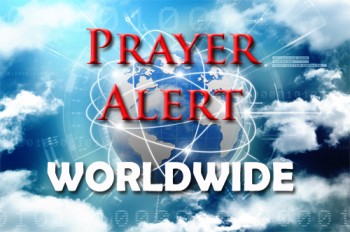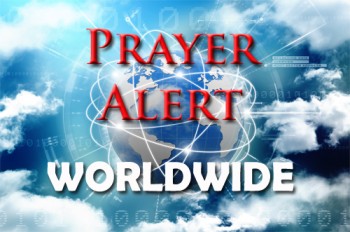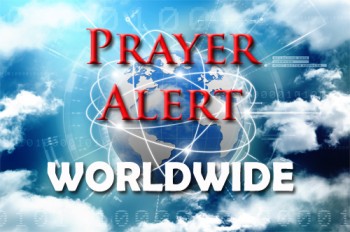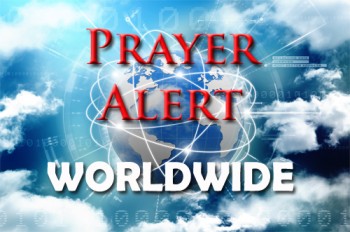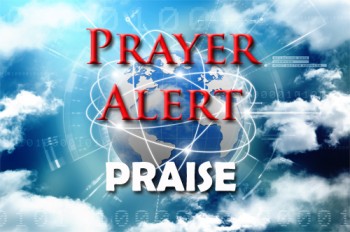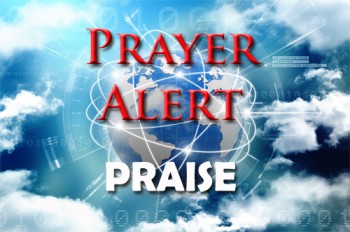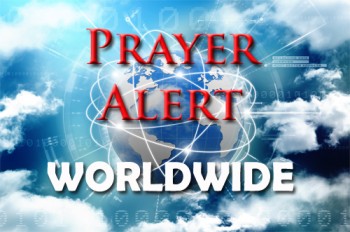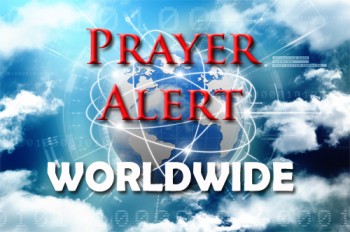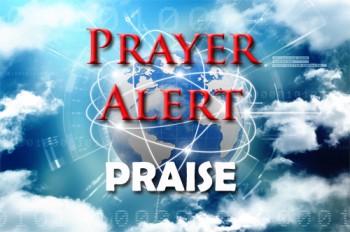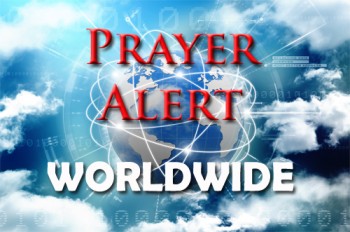Displaying items by tag: Africa
South Africa: demobilising ‘child soldier’ gangs
Hanover Park is a violent gangland neighbourhood of unemployed young men where even army deployment failed to stop shootings. Gangsters as young as 12 operate within a contested jigsaw of fiefdoms in the historically ‘coloured’ township - 15-minutes from well-heeled central Cape Town. Mary Bruce points to identical three-storey flats ‘That’s the Ghetto Kids. Over there are the Dollars, and this side are the Americans. They fight everyone.’ A couple of hundred metres towards the taxi rank the ‘turf’ yields the Mongrels and Laughing Boys gangs. Up to 500 youths in Hanover Park could be classed as ‘child soldiers’. Nearly 7,000 people in Hanover Park are active within the myriad street gangs that have their roots in a prison gang culture on the Western Cape that stretches back over 100 years. Pray for ‘Ceasefire’, NGO violence interrupters working to nip trouble in the bud and help gangsters to quit.
Algeria: churches shut down by authorities
Thirteen churches in Algeria have been closed since 2018. Hope Evangelical Church is the latest to be ordered to shut down as the government’s crackdown on houses of worship continues. A 2006 law is being used as a pretext to clamp down on churches, even though the commission it created is yet to meet to consider the requests it has already received. The law requires non-Muslim places of worship be authorised by the National Commission for Non-Muslim Worship. Concern is growing for Algerian Christians, as it is unable or unwilling to fulfil this essential part of its mandate. The government should either reconstitute it entirely, or the law itself should be repealed in order to ensure the right to freedom of religion or belief for religious minorities in the country. Pray for churches to know the Lord's peace, wisdom and guidance in the face of the growing pressure. Pray also that Christians are not discouraged by this fierce campaign against them.
Sub-Saharan Africa: violent Islamist militancy spreads
In Sahel and sub-Saharan Africa, the rise of Islamist militancy is a challenge to Christians and also to the existence of states and governments in the region, and thus to the rest of the world. The overthrow of Libya’s President Gaddafi and the power vacuum in Libya brought a wave of Islamist influence backed by money, weapons, drugs and organised crime that is spreading across Sub-Saharan Africa. In weak or ‘fragile’ states, where rule of law and governance are ineffective, Christian populations are left unprotected. The president of Mali said the very existence of Mali is at risk from jihadists. They exploit ethnic, tribal and socio-economic groups, creating conditions that draw recruits and increase their influence, thus widening the risk to global security. Mali, Burkina Faso, Niger, Chad and Mauritania, backed by France, have a task-force to combat jihadist insurgents. Pray for God to increase their intelligence sources so that they prevent attacks and catch militants. See also Europe article 1.
Nigeria: Boko Haram’s own goal?
Could the faith statement of an executed Christian leader encourage Christians facing persecution in Nigeria? Boko Haram beheaded Rev Lawan Andimi, chairman of the Christian Association of Nigeria (CAN). But could a faith message that militants recorded with him be an own goal for terrorists? CAN has urged Nigeria’s government and the international community to act decisively to help Christians under attack in Nigeria, calling for three days of prayer and fasting for effective action. The Church views the unabated kidnappings and killings as shameful for a government boasting that it has conquered insurgency. ‘Each time the government claims the defeat of the insurgency, more killings of our people are committed. We are almost losing hope in our government’s ability to protect Nigerians – especially Christians, who have become an endangered species under its watch.’
He thought he was a failure, but ...
In 1912, medical missionary Dr William Leslie went to live and minister to tribal people in a remote corner of the Congo. After 17 years he returned to the USA discouraged, believing he had failed to make an impact for Christ. He died nine years later. In 2010, a team from World Ministries made a shocking and sensational discovery. They found a network of reproducing churches hidden like glittering diamonds in the dense jungle across the Kwilu River from Vanga, where Dr Leslie had been stationed. Each village had its own gospel choir, although they wouldn’t call it that. They wrote their own songs and would have sing-offs from village to village. There were eight churches, scattered across 34 miles - even a 1,000-seat stone ‘cathedral’ in one village, which got so crowded that a church-planting movement began in the surrounding villages.
Love, not hate, the remedy
On 12 January Egypt’s president, Abdel Fattah al-Sisi, attended the Coptic Christmas service. Against a background of rising tensions in the Middle East, he held up the importance of tolerance and unity at a time when those tensions could spill over into conflict and violence - especially between religious groups. ‘If we love God, we must love each other,’ was his simple, powerful message. In 2019, at the opening of a new cathedral, he expressed his support for Christians, saying, ‘You are our family’. As Christians, we know that there is a model for this kind of love. For tense times and hard hearts, the Lord Jesus has already offered the perfect solution. Jesus’ greatest commands to us are to love God with all our heart and, out of this, to love our neighbour as ourselves. God, who is Love, wants us to love our neighbours who live alongside us - whether next door or across a distant border - with the same agape love He has for us.
Democratic Republic of Congo: violence and epidemics
DR Congo is one of the ten poorest countries in the world, coping with violence, disease, hunger, and the mass displacement of people caused by years of civil wars and cross-border conflicts. Partly through impunity and political impotence, conflicts continually flare up in the border areas, and East Congo remains a hotbed of unrest. Measles is a highly contagious disease caused by a virus that attacks mostly children. Left untreated, complications include blindness, brain swelling, diarrhoea, and severe respiratory infections. Congolese health officials say that comprehensive vaccination programmes are the only way to stop the epidemic from spiralling out of control. Ill-informed opposition can derail such plans. Measles has killed 6,000 people in a year, but its severity is overshadowed by the world's second-biggest Ebola epidemic on record - killing over 2,230 so far. Although new infections have slowed recently, the WHO warns that the virus is likely to resurge.
Ghana: spiritual warfare
Spiritual warfare and the mission of the church is woven into Pentecostal / charismatic Christianity as a form of pastoral care. Supporters of spiritual warfare call themselves charismatic prophets and create ritual context for dealing with the problems of life related to education, marriage, promotion, etc. Witchcraft, in particular, may be blamed for both personal and communal problems. It is not uncommon for Ghanaians to explain alcoholism as the result of the wickedness of family witches who seek to bring victims to ruin. Mental health and human reproductive problems are similarly explained as the work of evil spirits. In Pentecostal traditions, unless deliverance occurs through warfare prayers, the influences of evil are believed to continue until people’s lives are completely wrecked. This teaching does not call for ‘victims’ to be personally responsible for their actions.
From Maasai herdsboy to archbishop
He was an uneducated Maasai boy, expected to herd cows all his life. But when he was nine the boys in his village were told to attend school and he learnt about Jesus. His curiosity about faith grew. Next, he was sponsored through children’s charity World Vision; an overseas family supported him with simple and life-changing gifts. During a severe drought, World Vision fed the entire family. When the rains finally came, they helped them to grow their own food. Then his life truly shifted, and God took him on a journey he never could have imagined. To read his inspiring faith-filled story, click the ‘More’ button.
Uganda: land theft
When a woman’s husband dies, her neighbours and family often believe that she no longer has a right to the land. Albertina and her family fled to a refugee camp in Uganda’s brutal civil war. Her husband died there. All Albertina had left was her family and her piece of land. When she returned home, neighbours had stolen her plot and refused to move. For the poor Ugandans, a plot of land is where they farm and keep their family alive. Albertina’s neighbours violently threatened her, so she camped on the edges of her rightful property for the next eight years. Finally another widow told Albertina about International Justice Mission (IJM). IJM pursued her case, provided food for Albertina’s grandchildren, and guarded their hut. The fight for her land continues.
